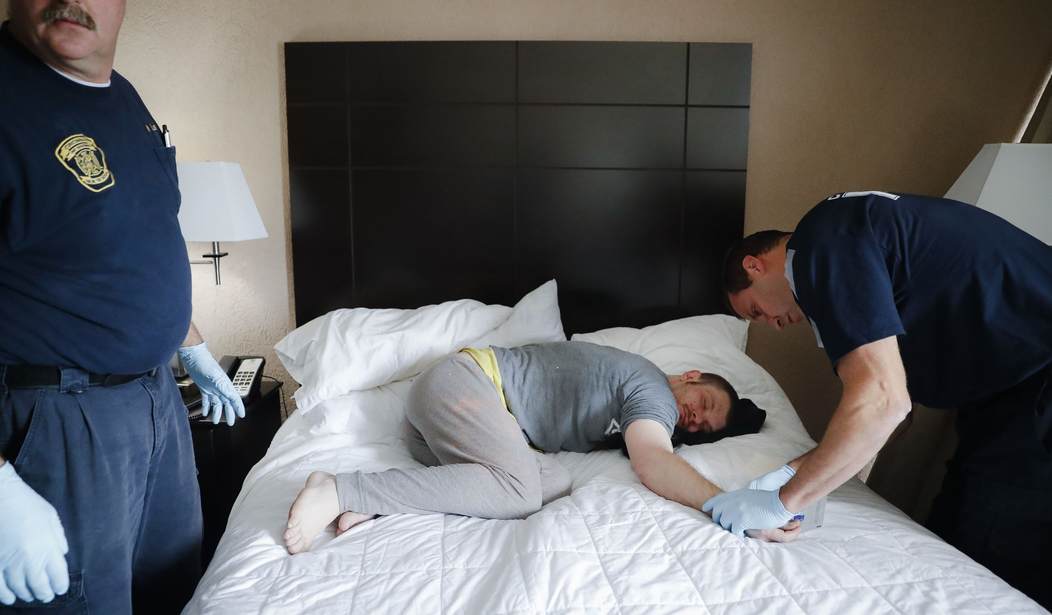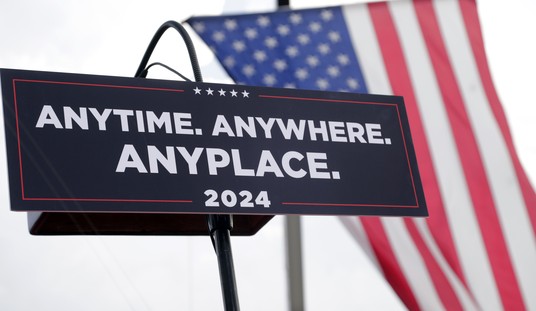In 2020, voters in Oregon narrowly approved a measure that would “reimagine” efforts to deal with drug addiction by decriminalizing nearly every aspect of the illicit drug trade. Resources would instead be focused on getting people into treatment and incentivizing recovery programs. The results have been nothing short of catastrophic, with junkies overdosing and in many cases dying on public sidewalks and in parks. The hands of the police have been tied, and supposedly mandatory recovery plans are widely ignored by drug users. This week, the Oregon Democrats who originally dreamed up this plan finally seemed to realize the error of their ways. New legislation has been introduced that would recriminalize public drug use and possession, allowing the police to confiscate illegal drugs and arrest those engaging in the trade in public. This was reportedly done only after the lawmakers realized that “public opinion has soured” on the plan. (Associated Press)
Democratic lawmakers in Oregon on Tuesday unveiled a sweeping new bill that would undo a key part of the state’s first-in-the-nation drug decriminalization law, a recognition that public opinion has soured on the measure amid rampant public drug use during the fentanyl crisis.
The bill would recriminalize the possession of small amounts of drugs as a low-level misdemeanor, enabling police to confiscate them and crack down on their use on sidewalks and in parks, its authors said. It also aims to make it easier to prosecute dealers, to access addiction treatment medication, and to obtain and keep housing without facing discrimination for using that medication.
“It’s the compromise path, but also the best policy that we can come up with to make sure that we are continuing to keep communities safe and save lives,” state Sen. Kate Lieber, a Portland Democrat, told The Associated Press.
We’ve covered Oregon’s disastrous decriminalization efforts here before and not much has changed in the past couple of years. When the state legalized the sale of marijuana, the anticipated tax windfall from those sales was supposed to go to recovery programs. People found to possess less than an ounce of heroin, for example, were only subject to a maximum fine of $100. They could avoid paying the fine and have the charge dismissed by calling a toll-free number and scheduling an addiction screening within six weeks. But there was no penalty imposed for not paying the fine. As a result, only a relative handful of people ever called and most of them failed to show up for their screening.
Under the revised law, suspects facing the same charges would still be able to avoid prosecution, but only if they call and show up for treatment. If they fail to do so, the case would be handed over to the DA and they could face up to a month in jail and a fine of more than one thousand dollars. But is that really all that much more of a disincentive? Most drug addicts don’t tend to walk around with thousands of dollars in cash. And a few weeks behind bars generally won’t end someone’s addiction. It just sends them into withdrawal pains for a while.
Oregon Republicans have offered their own version of the revised plan. Personal possession and use charges would bring up to a year in prison with mandatory recovery counseling and a fine of more than six thousand dollars. That might at least give some of the addicts a shot at a lasting recovery program and force them to take the charges seriously. That proposal was shot down by the Democrats as being too “harsh,” however.
One of the leading advocates for decriminalization was quoted as saying, “You don’t need a criminal penalty. You need services, and you need to make sure that you’re investing in those services.” What she doesn’t appear to understand is that the previous bill provided those services. Anyone arrested for possession could access them at no cost and the taxpayers were covering the bills. However, the recovery hotline was only receiving an average of 10 calls per month last year. The drug users were simply not interested. Meanwhile, more than 600 people died of opioid overdoses in the state, and hospital emergency room visits for drug overdoses skyrocketed.
Decriminalization simply hasn’t worked. Massive public education campaigns may have hopefully reduced the number of new drug users, but they are failing to get the current population into addiction recovery programs. This may simply be a problem without a viable solution for the time being.








Join the conversation as a VIP Member